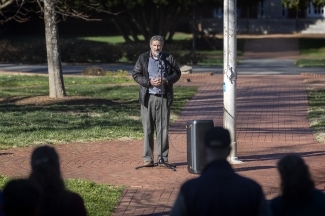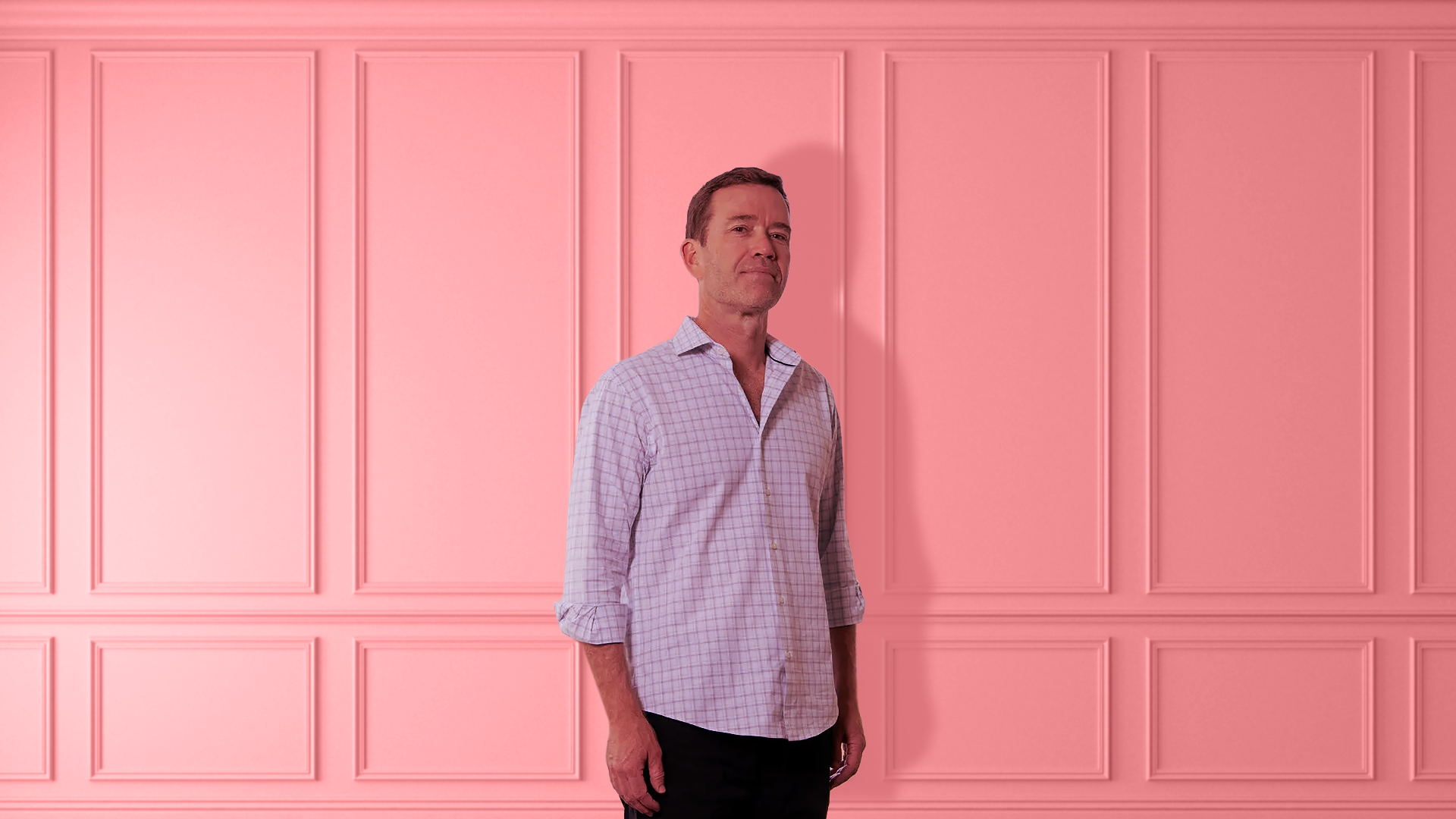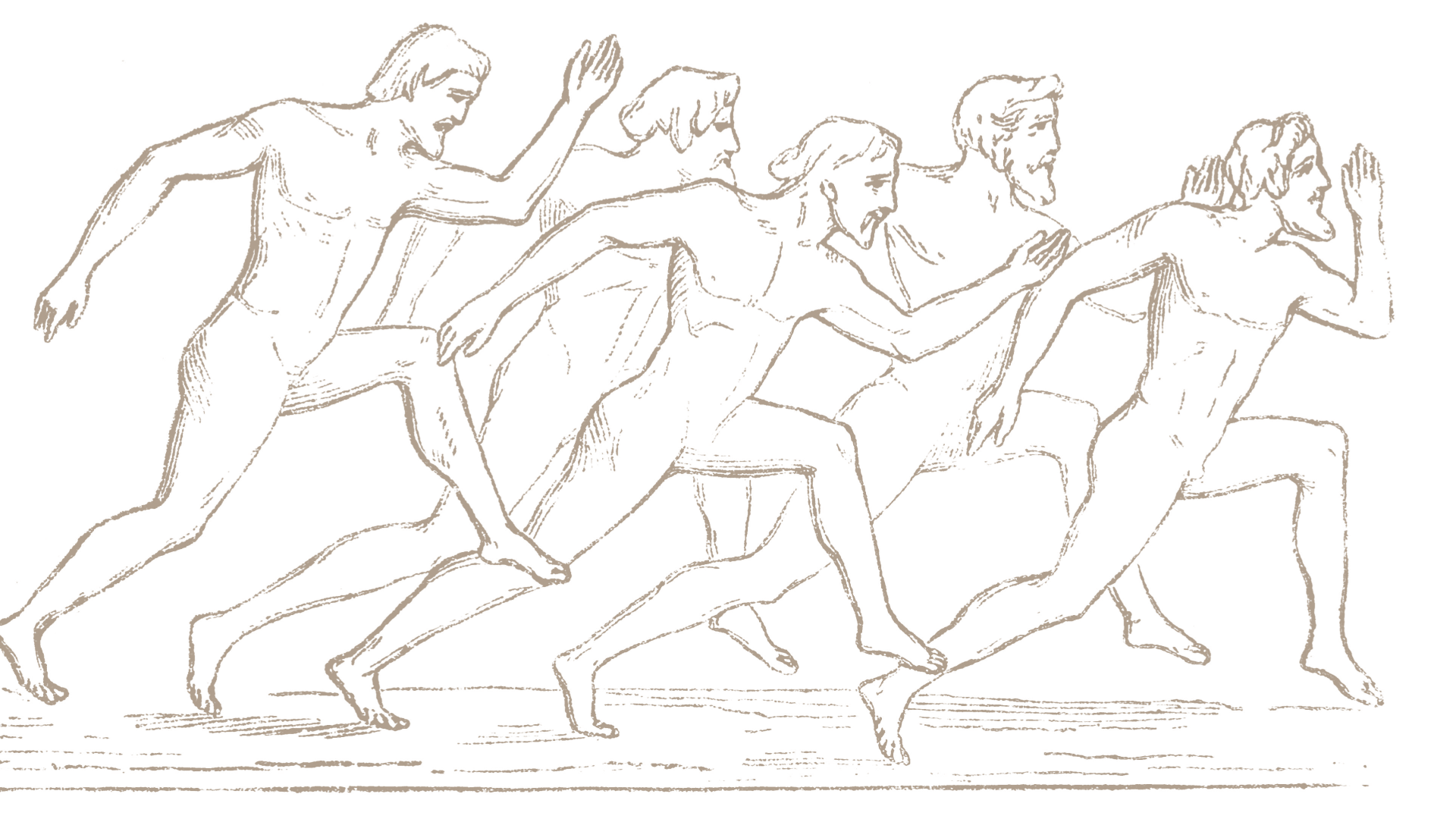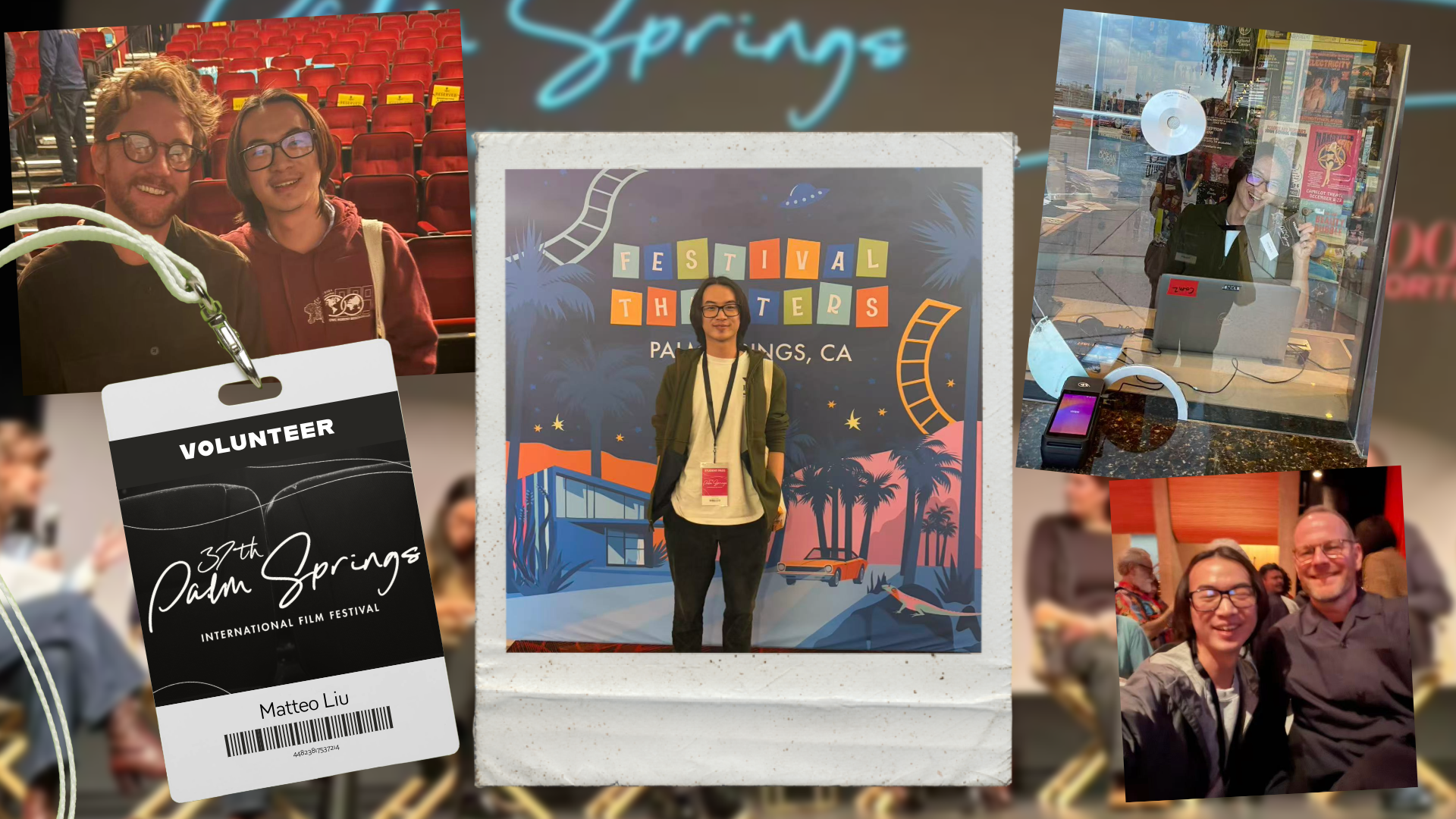Chaplain Rob Spach Looks Back On 30 Years of Service
June 23, 2023
- Author
- Danielle Strickland
Rob Spach ’84
For three decades, College Chaplain Rob Spach ’84 has continuously reimagined religious and spiritual life at Davidson.
During his tenure, the needs and interests of the student body and greater campus community have changed significantly. Spach and the Chaplains’ Office team have developed new ways to engage a student body that seeks out relevant on-campus programming, immersive travel experiences and community-building opportunities.
What’s kept him here for 30 years? Most of all, he says, the amazing students. He has also savored the freedom to experiment with programs and activities and the remarkable resources the college has to support religious and spiritual life.
Spach retires from Davidson August 4. As he embraces this next phase of life, we asked him to reflect on the past 30 years. Thank you, Rob, for promoting an environment where we all are encouraged to be ourselves, explore, learn and grow together.
What are you most proud of in terms of the development of religious and spiritual life at Davidson over the past 30 years?
I’m grateful for three areas of the development of religious and spiritual life at Davidson.
First, the growth and diversity of opportunities available to students, including: a wide variety of student-led organizations; regular on-campus Christian worship services several days a week; on-campus celebrations of holy days of many faiths; and trips during academic breaks that are rooted in Buddhist, Christian, interfaith and Jewish experiences.
Second, the development of a staff of five chaplains and a staff assistant, all of whom are committed to supporting every religious and spiritual tradition represented on campus in its particularity, and to fostering a community that values engaged and respectful pluralism.
Members of Davidson's religious and spiritual life team gathered together in summer 2022.
Third, creating worship, Bible study, and dialogue opportunities where members of the LGBTQ+ community know that they are respected, affirmed and loved, and where they are full participants and leaders who share their perspectives and gifts to enrich the religious landscape of the college community.
What were some of the most challenging moments during your time on campus, and how did your office contribute in those moments at Davidson and in the greater Charlotte region?
Challenging moments fall into a couple of categories.
First, the deaths of students. Offering pastoral care to family and friends during times of grief is a privilege. It can be challenging at times for a variety of reasons. For example, I conducted my first memorial service during my fourth year as chaplain. The student was from Japan. He had died in a tragic automobile accident. Working with his friends on campus, most of whom were international students from a variety of religious backgrounds, to create a memorial service that would honor him and his parents who were from Buddhist/Shinto traditions, was a situation for which my training had not prepared me. At times like those, I've learned to center everything on our common humanity and fragility when people lose someone they love. Although it's impossible to take away the heartache, the community can surround the family and friends with tenderness and support.
Second, accompanying members of the college community during times of local, national, or global crises or tragedies. Examples include providing leadership during the enormous gathering in the Alvarez College Union on the night of the terrorist attacks on Sept. 11; helping students plan and lead vigils both on campus and in Charlotte when anti-Semitic or Islamophobic events have taken place; and offering prayers at campus gatherings after young black men, women or transgender individuals have been murdered.

Rob Spach has led the community through many interfaith vigils, including this one in 2022 for Ukraine.
Share the most significant ways religious and spiritual life has changed, comparing then to now?
One change has been in the diversity of the student body and the consequent growth of student involvement and in the number of student-led religious and spiritual life organizations. When I arrived in the fall of 1993, Davidson had five student-led religious organizations—one Catholic, one Presbyterian, and three non-denominational Christian. As of the spring of 2023, Davidson has sixteen such groups—one Buddhist, one Jewish, one Muslim, six denominationally affiliated Christian, five non-denominational Christian, one non-religious meditation and one interfaith.
Another change has been the expansion of funding and infrastructure to support diverse religious and spiritual traditions. On the funding side, Davidson now has endowments or expendable funding for the following:
- Buddhist programs, retreats, and an annual lecture/cultural event
- Christian programs, spring break trips, annual lectures, grants to students for faith-based projects, and two faith-based summer internships
- Jewish programs, an international spring break trip, and an annual lecture series
- summer grants for students exploring Asian religious traditions
- five funded summer internships for students from any religious tradition who would like to explore whether they feel called to serve a religious community as a member of the clergy.
On the infrastructure side, Davidson has:
- two labyrinths for walking meditation (a permanent one outdoors, the other portable)
- a room called the Oasis in the Chaplains’ Office suite set aside exclusively for religious and spiritual life activities
- two “wudu” or ablution stations where our Muslim students prepare for prayers, as well as many prayer rugs available to students
- sets of 20 meditation cushions (called zafus and zabutons)
- a sukkah that is set up during the Jewish festival of Sukkot
- a “Davidson Haggadah” created a few years ago by a student, copies of which are used at our annual Passover Seder.
A third change has been in the number of chaplains and campus ministers (not employed by the college) who support students involved in a range of student organizations. In 1993, I served as Chaplain, Brenda Tapia was a quarter-time assistant chaplain, InterVarsity had a staff worker on campus and DCPC assigned an associate pastor for ministry to students part-time. Today, we have a chaplain, four associate chaplains (Buddhist, Catholic, Jewish and Presbyterian Church USA), and eight campus ministers.
In what ways has it stayed the same?
The students were amazing when I arrived, and they continue to be amazing! I have learned a tremendous amount from them over the years.
What do you think is the greatest opportunity for this area of campus moving forward?
Davidson has an opportunity to exemplify for the American higher education community how a church-related liberal arts college, because of its particular religious grounding (rather than in spite of it), can promote a forward-looking, inclusive educational vision. The goal is to foster a community of intellectual rigor where diverse worldviews are each expressed in their distinctiveness, and where all contribute to a shared ethos. Because of the particular religious tradition to which Davidson is related (in this case, the Reformed Tradition as embodied by the Presbyterian Church USA), the college can and in fact must be a community that supports diverse religious particularities in a pluralist context, and that affirms that faith and reason, science and religion, social justice and reverence for the divine can go hand in hand. The ethos thus created is intended to sustain spaces for disparate, even divergent views as it upholds humane values, academic excellence, diversity, inclusivity, freedom of conscience, varied faiths and spiritual practices, and the dignity and worth of every person.
The Chaplains’ Office staff has grown tremendously over your time at Davidson. How does this growth better serve our students?
The religious demographics of the student body have changed over these 30 years. Our numbers in 2022 are remarkably close to the national demographics for 18-25-year-olds.
Davidson students by tradition |
1993 |
2022 |
|---|---|---|
|
Presbyterian |
25.9% |
8.4% |
|
Catholic |
12.2% |
16.0% |
|
Other Christian |
48.4% |
28.7% |
|
Jewish |
0.7% |
4.2% |
|
Muslim |
0.7% |
1.7% |
|
Other Religious |
1.4% |
4.3% |
|
None / Unknown |
10.7% |
36.7% |
This expansion of the chaplaincy staff has helped us provide greater support for students who identify as Buddhist, Catholic and Jewish, as well as Presbyterians and other Protestant Christians. We’re also able to engage students who are spiritual seekers or are interested in meditation or other contemplative practices apart from particular religious traditions. Beyond student support, the diversity of the chaplaincy staff has also enriched the entire college community, embodying respect for each religious particularity in the context of respectful pluralism.
What will you miss most?
Interacting with students on a daily basis, serving alongside my remarkable colleagues in the Chaplains’ Office and constantly being engaged with people from a wide variety of religious and spiritual traditions.
Was there a course, professor or mentor that/who had an influence on you during your time as a Davidson student?
While in college, I discovered a love for the Bible, for theology and for the field of religion & literature. Among the professors who influenced me are Tony Abbott, Frank Bliss, Karl Plank, Sandy McKelway, Max Polley and Dan Rhodes. It was also during college that I learned about the novelist Frederick Buechner. A highlight of my time at Davidson was writing my senior CIS thesis about Buechner’s work.
What books have had the most impact on you throughout your career?
Several books that have been particularly meaningful are (in alpha order by author):
- Tattoos on the Heart by Fr. Gregory Boyle, S.J.
- The Hungering Dark and Godric by Frederick Buechner
- The Girard Reader by René Girard
- the Brother Cadfael mystery series by Ellis Peters (for light reading)
- My Grandfather’s Blessings by Rachel Ramen, M.D.
Are there things you are looking forward to pursuing in retirement?
Spending more time with my family, reading, hiking, meditation, connecting more intentionally with friends. Mostly, for the time being I plan to let my life lie fallow. I’ll tend to seeds that fall into the soil and see where God’s Spirit leads me from there. Ad maiorem Dei gloriam.



